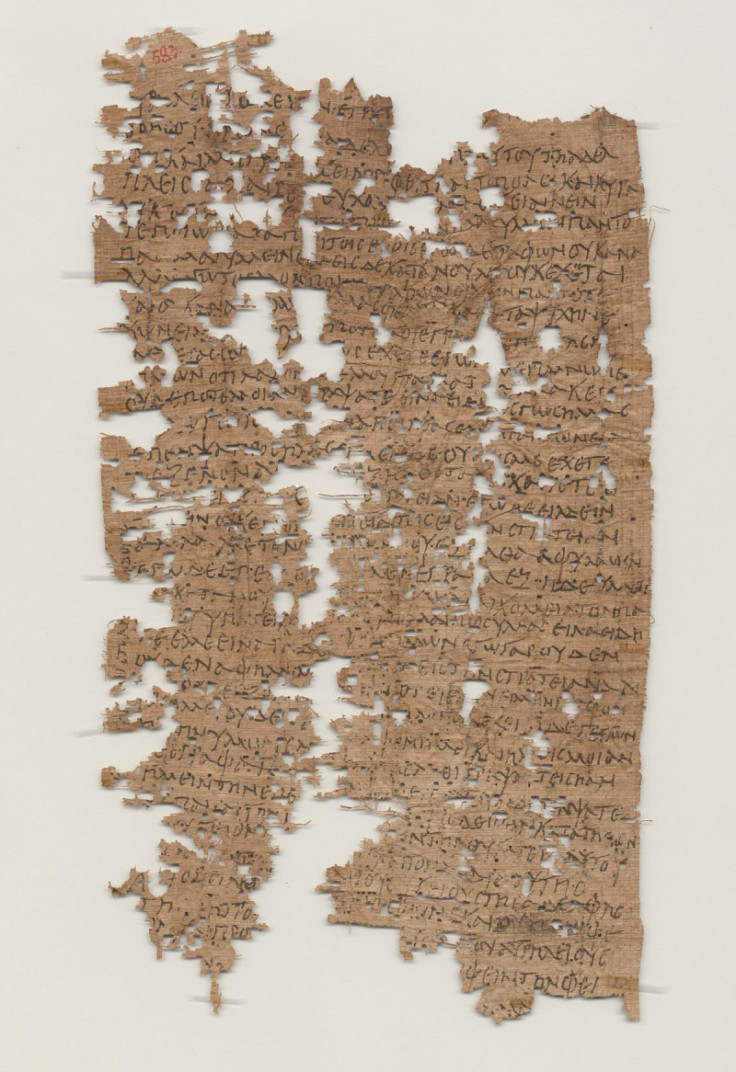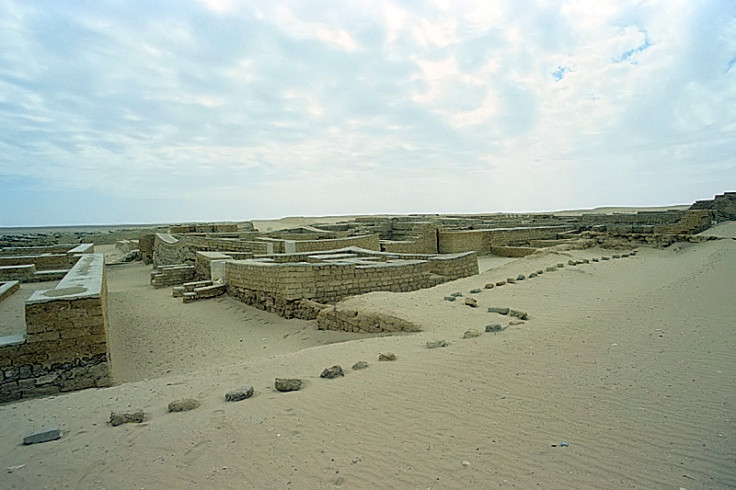Egyptian Soldier Aurelius Polion's 1,800-Year-Old Letter Home Has Poignant Modernity

A 1,800-year-old letter sent by an Egyptian soldier has been translated for the first time and has poignant similarities to those involved in modern warfare.
The letter was sent by Aurelius Polion, a soldier serving in a Roman legion in Europe to his family at home. In it, he addresses his brother who has not written to him for some time.
Translated by religious studies student Grant Adamson from Rice University in Texas, the letter was first discovered in 1899 by an expedition team searching the ancient Egyptian city of Tebtunis.
Written mostly in Greek, Polion addresses his brother, sister and mother. It shows how he is desperate to contact them after receiving no reply to six previous letters: "I pray that you are in good health night and day, and I always make obeisance before all the gods on your behalf. I do not cease writing to you, but you do not have me in mind.
"But I do my part writing to you always and do not cease bearing you (in mind) and having you in my heart. But you never wrote to me concerning your health, how you are doing. I am worried about you because although you received letters from me often, you never wrote back to me so that I may know how you are.
"I sent six letters to you. The moment you have(?) me in mind, I shall obtain leave from the consular (commander), and I shall come to you so that you may know that I am your brother. For I demanded(?) nothing from you for the army, but I fault you because although I write to you, none of you(?) ... has consideration. Look, your(?) neighbour ... I am your brother."

Published in the Bulletin of the American Society of Papyrologists, Adamson thinks Polion was stationed in the province of Pannonia Inferior at Aquincum, an area that is now Budapest. He believes the legion the soldier belonged to travelled a lot, even as far as modern day Istanbul.
After its discovery by Grenfell and Hunt a century ago, it was catalogued and left unread: "This letter was just one of many documents that Grenfell and Hunt unearthed," Adamson said. "And because it was in such bad shape, no one had worked much on it for about 100 years." Even now portions of the letter's contents are uncertain or missing and not possible to reconstruct.
"Polion was literate, and literacy was rarer then that it is now, but his handwriting, spelling and Greek grammar are erratic. He likely would have been multilingual, communicating in Egyptian or Greek at home in Egypt before he enlisted in the army and then communicating in Latin with the army in Pannonia."
To establish the date of the letter, Adamson looked at handwriting styles and his name – Aurelius – which would have been a result from the expansion of Roman citizenship in the second century.
April DeConick, chair of Rice University's religious studies department, said: "One thing that I think is important about this letter is that it reflects the emotions of a soldier in the ancient world. His emotions are really no different than those of soldiers today, who are longing to go home."
© Copyright IBTimes 2025. All rights reserved.






















